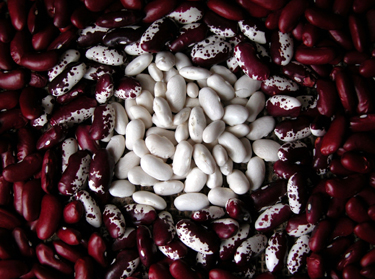I remember that late spring morning about seven years ago, working in the lower fields of Green Gulch Farm, harvesting rainbow chard for our local food bank with a group of elementary school students from San Francisco. The kids were fanned out in a rainbow arc themselves, spanning the field, chattering as they harvested crates of greens. One child, a pale and strangely mute boy of about ten, wandered away from his classmates to stand alone at the edge of the field, where farm irrigation sprinklers were watering the next line of crops. The May morning was warm, without a breath of wind. I watched as the child took his place in the back-mist of the irrigation jets, holding his thin, white hands out to the soft hiss of water. “He’s a new boy,” the classroom teacher whispered, following my gaze. “From Bosnia. He never says a word.”
I often thought of that Bosnian child in the seasons that followed and of his new life in the same Western culture that was dismantling his Old World. So when about a year later a close farmer friend entrusted me with a handful of speckled soup beans that had been passed on to her from a refugee Kosovar family forced to flee their garden, I eagerly sowed those seeds and grew them out over the next five years with the help of hundreds of Bay Area children. We told the story of the Kosovo beans every time we planted them, always with the firm conviction that someday these beans would go home to their original Balkan gardens.
The Kosovo beans grew like wildfire, and no wonder. Beans are an enduring crop, dating back some eight thousand years, native not only to South America but also to Africa, China, India, and Europe. The fertility of land and culture has long depended on the humble legume for its ability to consolidate free atmospheric nitrogen on its strong roots, helping, in active association with clouds of soil bacteria, to bring wasted land back to life. Some six hundred genera and twelve thousand species compose the legume family, and many members are thoroughly integrated with land and people. Yet the domestication of the tiny, hard-skinned wild bean of antiquity to the plump, thin-coated bean of modern gardens has bred dependency as well as increased harvest; for in order for the protein-rich beans of today to survive they require their gardeners. We had inherited a gift not only of Kosovo beans but also of Balkan culture.
Last summer those Kosovo beans returned home, carried by Suzy Stewart, a veteran science teacher of twenty years from our local middle school, to Badija Island on the Adriatic Sea, just off the Dalmatian coast of Croatia. Suzy and her husband were serving as volunteers in a camp sponsored by Global Children’s Organization for war-traumatized children from the Balkans. My farmer friend wove a bag of richly patterned silk ribbon for the homecoming of the beans, and in the old monastery on Badija Island where the GCO camp was held, 108 Muslim, Croat, Serbian, and Bosnian children received the well-tended gift of their native beans. Suzy and the children tore strips of an old blue sheet and wrapped tiny packages of a few seeds each tied with bright red yarn for the children to take home. With the remaining yarn the children wove friendship bracelets on each others’ wrists.
This summer’s GCO camp, known as Friendship Without Borders, will be held on a new fifteen-acre mountain retreat near Sarajevo, in Bosnia. The retreat center may not yet have a garden, but just in case it does, we’ll send along an extra handful of Kosovo beans to plant for next year’s soup. We also sowed a line of the same beans in the kids’ garden at Green Gulch on July 3, in honor of Interdependence Day. One of the older children at the planting read these words from thirteen-year-old Zelijka, of the Balkans: “Maybe some people destroyed this world but in our hearts it is forever lovely.”
 Balkan Spring Bean Soup
Balkan Spring Bean Soup
From the kitchen of Alma Elezovic
1 lb of new soup beans, rinsed
2 tomatoes, diced
1 bunch of spring onions, chopped
1 bunch of garden parsley, chopped
2 carrots, peeled and chopped
3 large soup spoons of vegetable oil
6-8 cups of broth or vegetable stock
2 tablespoons of paprika
salt and pepper to taste
Saute vegetables in oil for twenty minutes. Simmer in broth with beans and seasoning for about a half hour.